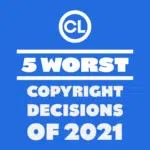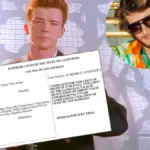Taylor Swift’s legal battles over “Shake it Off” are a good example of what can happen to an artist with a massively-popular hit single. Swift has been defending two different copyright infringement lawsuits over this song for nearly five years.
When Taylor Swift released “Shake It Off” in 2014, it quickly became one of her biggest hits. Love it or hate it, there was no denying that the song’s hook was stuck-in-your-head catchy:
“Cause the players gonna play, play, play, play, play
And the haters gonna hate, hate, hate, hate, hate
Baby, I’m just gonna shake, shake, shake, shake, shake
I shake it off, I shake it off”
Graham v. Swift
While Swift was no doubt pleased with the song’s incredible success, R&B singer Jessie Graham was less enthused. Graham had written a 2013 song called “Haters Gone Hate,” which contains the phrase “Haters gone hate, playas gone play / watch out for them fakers, they’ll fake you everyday.” Graham’s song was decidedly less popular than Swift’s, and his YouTube Channel featuring the song only had 23 subscribers as of 2014.
Nevertheless, convinced that Swift had ripped off his lyrics, Graham filed a lawsuit against the singer in 2015. Graham (who for unknown reasons spelled his last name as “Braham” in his original complaint) alleged that “Shake it Off” infringed his copyright in “Haters Gone Hate.”
The magistrate judge assigned to the case didn’t even wait for Swift to file a response before dismissing the lawsuit. The judge’s order listed several other works about “players playing” and “haters hating” to demonstrate that Graham’s lyrics were not particularly original. In a concluding paragraph that she had way too much fun writing, the judge invoked several of Swift’s songs:
At present, the court is not saying that Braham can never, ever, ever get his case back in court. But, for now, we have got problems, and the court is not sure Braham can solve them. As currently drafted, the complaint has a blank space—one that requires Braham to do more than write his name. And upon consideration of the court’s explanation in part two, Braham may discover that mere pleading Band-Aids will not fix the bullet holes in this case. At least for the moment, defendants have shaken off this lawsuit.
U.S. Magistrate Judge Gail Standish
Notwithstanding the judge’s order, Graham tried again. More accurately, he tried four more times. Graham’s successive lawsuits have suffered from a laundry list of defects, from failing to allege a registered copyright to failing to properly serve his complaint.
The court dismissed Graham’s first two complaints with leave to amend, but his third complaint was dismissed with prejudice. I’ll refrain from making an easy “Shake It Off” joke, but suffice to it say that the judge’s order didn’t deter Graham from filing Lawsuit Number Four.
While this won’t surprise you, Graham is acting as his own lawyer on the case. Nevertheless, pro se plaintiffs are still required to follow Federal Rule of Civil Procedure 11, which prevents litigants from making factually or legally baseless claims. This includes refiling complaints that have been dismissed with prejudice.
Graham tried to get around the previous three dismissals by filing his next lawsuit in the name of his company. The court wasn’t buying it. The judge also wasn’t happy with Graham fraudulent adding the name of a law firm and some of its attorneys to the cover page of one of his pleadngs, presumably to give the court the impression that he had retained counsel. In entering yet another dismissal on July 21, 2020, the judge cautioned Graham that should he engage in similar conduct in the future, he risked being declared a “vexatious litigant.”
While this should be the end of the story, of course it’s not. Amazingly, Graham has kept going. On August 4 he filed Lawsuit Number Five. Same plaintiff, same defendant, same case. No word yet on whether the plaintiff will in fact be declared a “vexatious litigant” this time around.
UPDATE—On January 12, 2021, the court dismissed Graham’s fifth lawsuit, but stopped short of declaring the plaintiff a vexatious litigant. Read more here.
Hall v. Swift
Meanwhile, Graham’s isn’t even the only copyright infringement lawsuit that Taylor Swift is currently defending over “Shake It Off.” Songwriters Sean Hall and Nathan Butler also filed a complaint against Swift that has been bouncing up and down the Ninth Circuit since 2017. Hall and Butler claim that Swift infringed their 2001 song “Playas Gon’ Play” (performed by female R&B group 3LW), which features the line “The playas gon’ play/Them haters gonna hate.”
Interestingly, the 3LW song was one of the “previous works” the magistrate judge called out in her order dismissing Jesse Graham’s initial complaint. Perhaps sensing an opportunity, Hall and Butler alleged that they were in fact the first to combine the concept of playas playing along with hater hating to “describe two separate people – one playa who engages in playing and one hater who engages in hating.” And yes, that is a direct quote from the lawsuit.
The judge in the Hall action initially dismissed the plaintiffs’ complaint on based on a lack of originality in the plaintiffs’ lyrics—finding that even if Swift had indeed copied “playas gon’ play” and “haters gonna hate” from Hall and Butler, those short phrases weren’t subject to copyright protection in the first place.
In an unpublished decision on appeal, the Ninth Circuit reversed, ruling that Hall and Butler had “plausibly alleged” that their lyrics were sufficiently original to qualify for copyright protection. The case was sent back down to the district court.
On August 11, Swift’s lawyers filed a supplemental memorandum once again seeking to throw out the case at the pleading stage. This time, they rely on copyright’s “merger doctrine,” the principle stating that when an idea and its expression are inseparable—i.e., where the idea can effectively only be expressed in one way—the expression “merges” with the idea and is therefore not protected.
Swift contends that the idea of “one player who engages in playing and one hater who engages in hating” is “inseparable from the allegedly copied words, namely players play and haters hate.” Therefore, claim Swift’s lawyers, even if the issue of originality can’t be decided on a motion to dismiss, the merger issue can be. They argue that the court should dismiss the claim because Hall and Butler are trying to protect a phrase that would essentially give them a monopoly over the underlying idea.
As Swift waits for the district court to weigh in on both the Hall and Graham cases, this week she marks the sixth year anniversary of the release of the song that led to all this litigation. We’ll keep you posted on all the playin’ and hatin’ to come.






